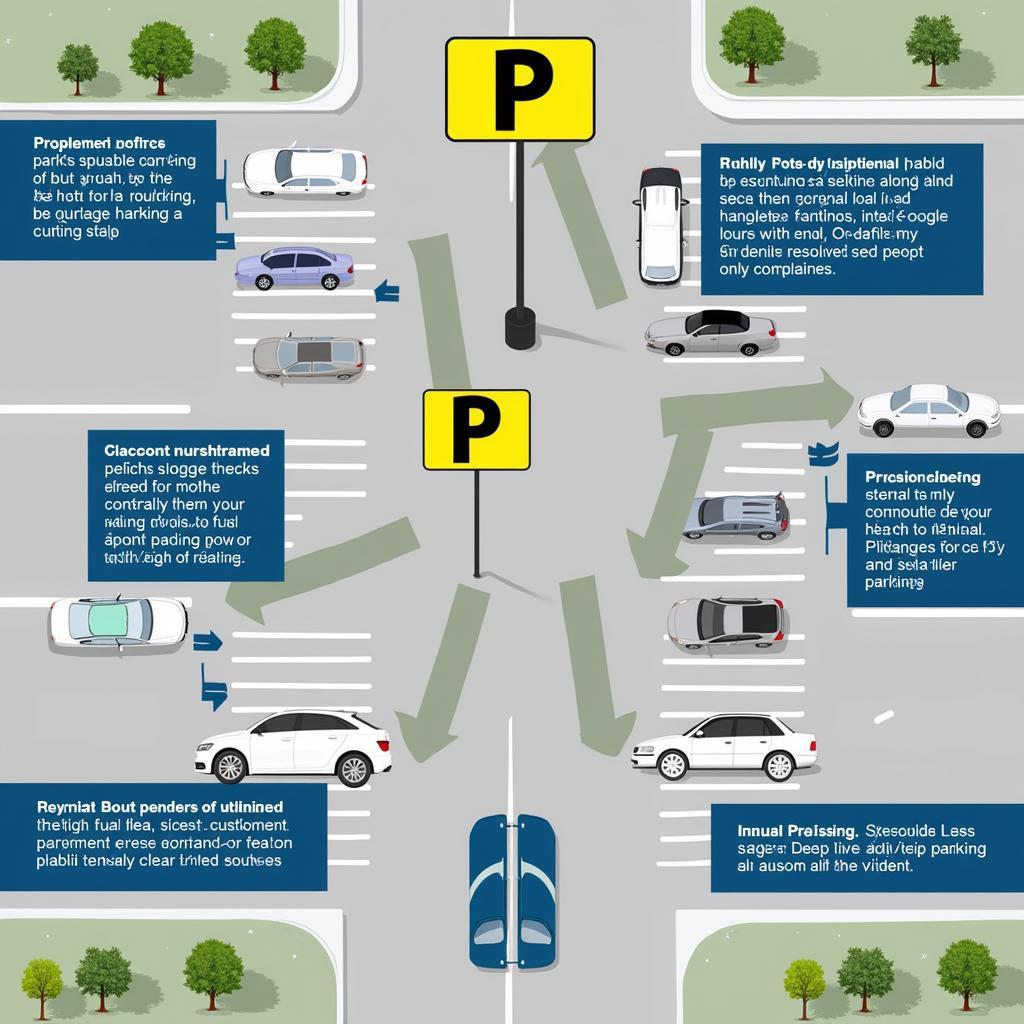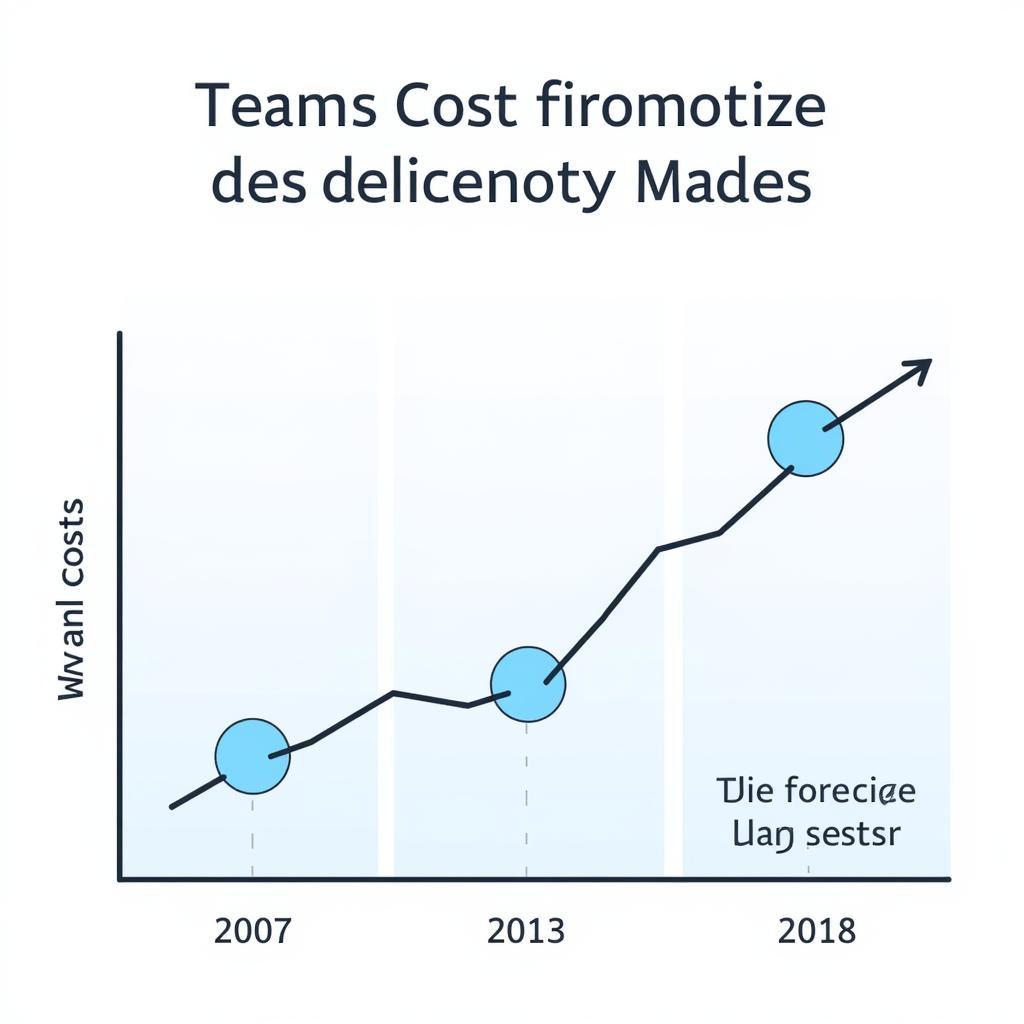Car Consumes More Diesel After Service: Why and What to Do
If your Car Consumes More Diesel After Service, it can be frustrating and concerning. This unexpected increase in fuel consumption can stem from various factors, ranging from simple oversights to more complex mechanical issues. Understanding the potential causes is crucial to addressing the problem effectively.
Common Reasons for Increased Diesel Consumption After Service
Several factors can contribute to a car consuming more diesel after service. Let’s explore some of the most common culprits:
-
Incorrectly Calibrated Fuel Injectors: Diesel engines rely on precise fuel injection for optimal performance and fuel efficiency. If the fuel injectors were adjusted or replaced during the service and not calibrated correctly, they could be delivering too much fuel, leading to increased consumption.
-
Air Filter Issues: A clogged or improperly installed air filter restricts airflow to the engine. This forces the engine to work harder, requiring more fuel to maintain performance. This is a common issue that can be easily overlooked during service.
-
Fuel Filter Problems: Similar to the air filter, a restricted fuel filter can impede the flow of diesel to the engine. This can cause the engine to overcompensate by injecting more fuel, resulting in higher consumption.
-
Tire Pressure: Underinflated tires create more rolling resistance, requiring the engine to work harder and consume more fuel. While tire pressure checks are often part of routine service, it’s possible they were overlooked or not adjusted correctly.
-
Driving Habits: Sometimes, the perceived increase in fuel consumption isn’t a mechanical issue at all. Changes in driving style, such as more aggressive acceleration or frequent idling, can significantly impact fuel economy.
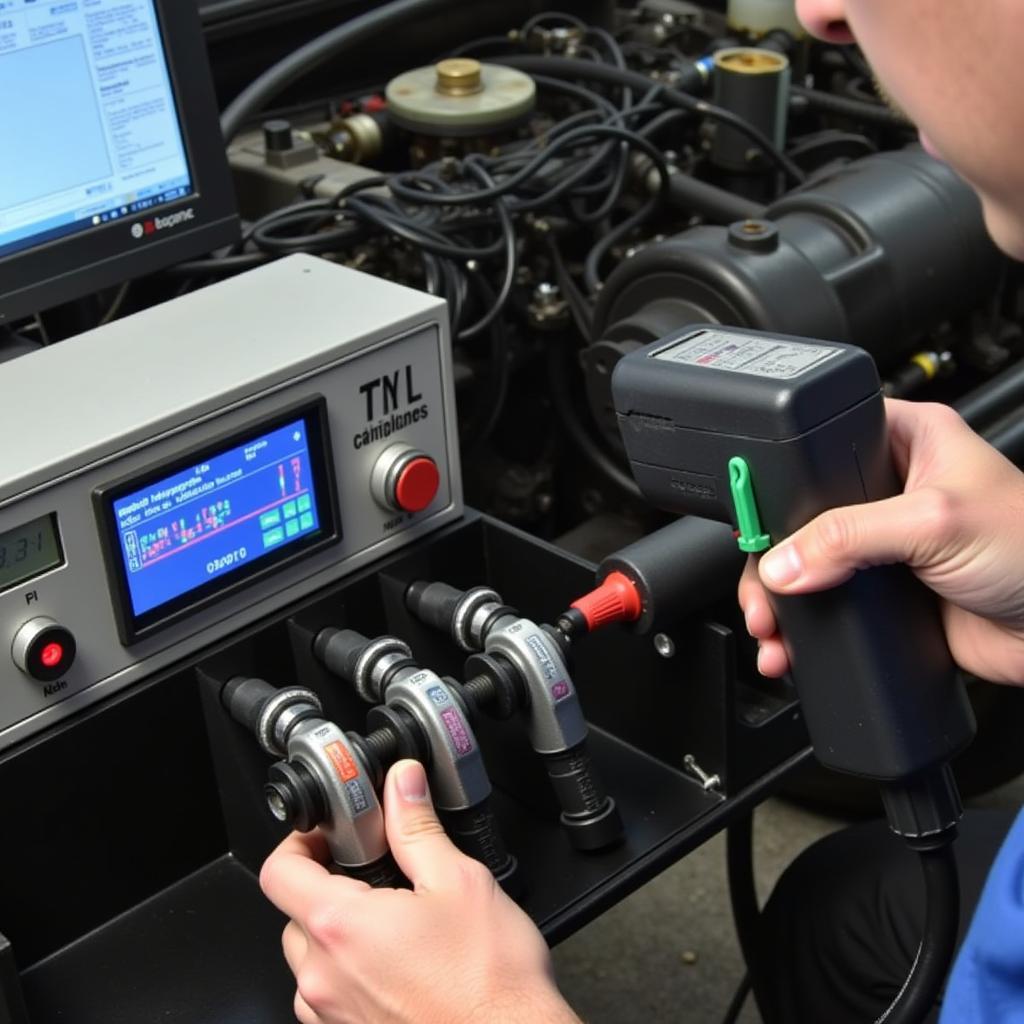 Diesel Injector Calibration Process
Diesel Injector Calibration Process
Troubleshooting High Diesel Consumption
If you notice your car is using more diesel after a service, here’s a step-by-step guide to help you troubleshoot the problem:
-
Check the Service Records: Review the service records to see what work was performed. This can provide valuable clues about potential causes for increased fuel consumption.
-
Inspect the Air and Fuel Filters: Visually inspect the air and fuel filters. If they appear dirty or damaged, replace them.
-
Check Tire Pressure: Ensure your tires are inflated to the recommended pressure specified in your car’s owner’s manual.
-
Monitor Your Driving Habits: Pay attention to your driving style and avoid aggressive acceleration and excessive idling.
-
Contact the Service Center: If you’ve checked these factors and the problem persists, contact the service center that performed the work. They should be able to diagnose and rectify the issue.
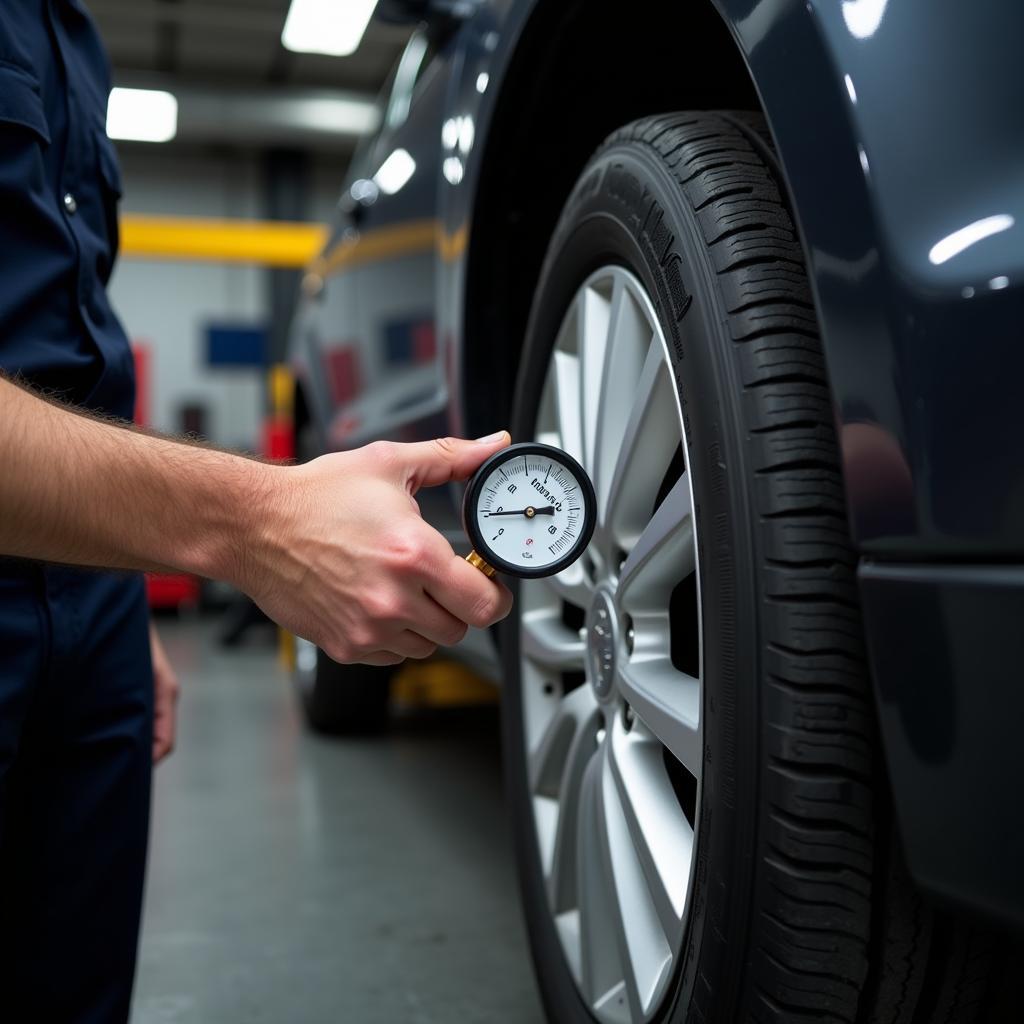 Mechanic Checking Car Tire Pressure with Gauge
Mechanic Checking Car Tire Pressure with Gauge
Preventing Future Issues
Regular maintenance is key to preventing increased fuel consumption and other car problems. Here are some proactive steps you can take:
-
Scheduled Servicing: Adhere to your car’s recommended service schedule. This ensures that potential issues are identified and addressed promptly.
-
Quality Parts: Use high-quality air and fuel filters. Inferior filters can clog more easily and negatively impact fuel economy.
-
Regular Tire Checks: Regularly check your tire pressure and maintain the correct inflation levels.
“Regular preventative maintenance is the best way to avoid unexpected increases in fuel consumption,” says John Miller, Senior Automotive Technician at Miller’s Auto Repair. “Simple checks like monitoring tire pressure and replacing filters can make a significant difference.”
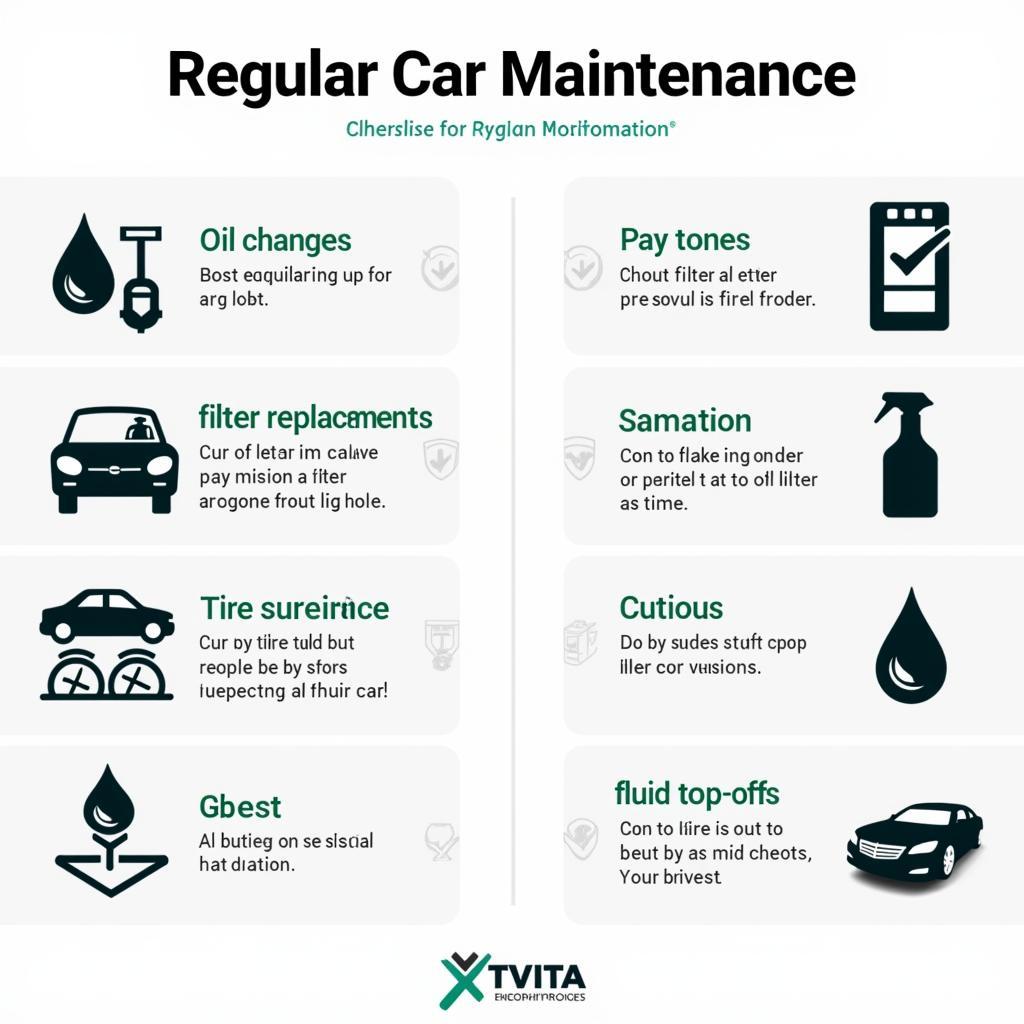 Regular Car Maintenance Checklist
Regular Car Maintenance Checklist
Conclusion
Experiencing increased diesel consumption after a service can be puzzling, but by understanding the potential causes and following the troubleshooting steps outlined above, you can effectively address the issue. Regular maintenance and proactive checks are essential for preventing future problems and maintaining optimal fuel efficiency. Remember, addressing these issues promptly can save you money on fuel and contribute to the longevity of your vehicle. Don’t hesitate to return to the service center if the problem persists.
FAQ
- Why would my car use more diesel after a service? Several factors, such as incorrectly calibrated fuel injectors, clogged air filters, or underinflated tires, can contribute to increased fuel consumption.
- How do I check my tire pressure? Use a tire pressure gauge to check the pressure and compare it to the recommended pressure in your owner’s manual.
- Should I contact the service center if the problem persists? Yes, contact the service center if you’ve tried troubleshooting and the problem continues.
- How can I prevent this from happening again? Regular maintenance, using quality parts, and checking your tire pressure regularly can help prevent future issues.
- What if my driving habits have changed? More aggressive driving or increased idling can also increase fuel consumption. Try to maintain consistent driving habits.
- Could a faulty fuel filter cause increased diesel consumption? Yes, a restricted fuel filter can cause the engine to overcompensate and use more fuel.
- Is it normal for fuel consumption to fluctuate slightly after a service? Some minor fluctuation can occur, but a significant increase warrants investigation.
Other Related Articles
- Understanding Diesel Engine Maintenance
- Tips for Improving Fuel Economy
- Common Car Problems After Service
Need further assistance? Contact us via WhatsApp: +1(641)206-8880, or Email: [email protected]. Our customer support team is available 24/7.
